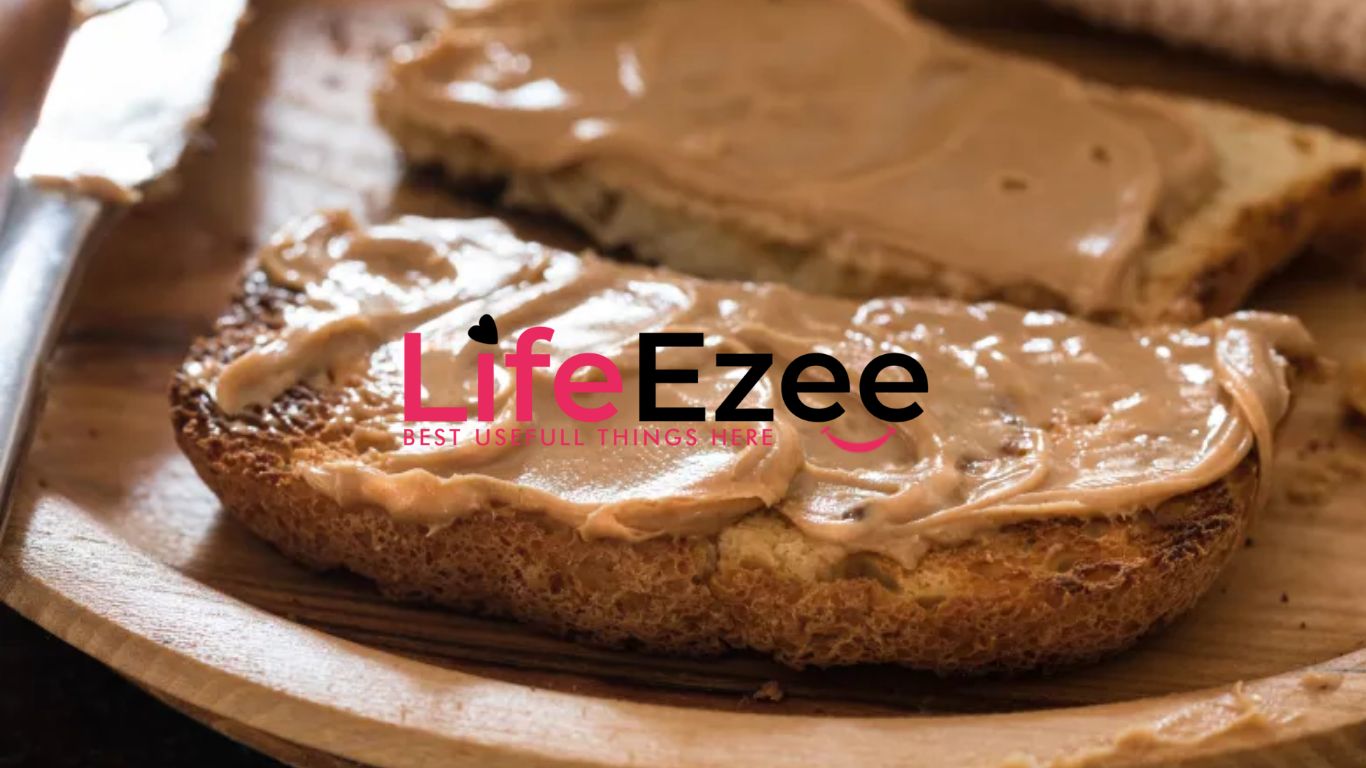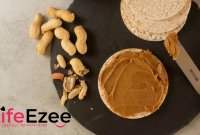If you’re like us, you set peanut butter on something and every part. Peanut butter is by far the preferred among the many nut butter, and also you’d be hard-pressed to find that it doesn’t complement or make higher. Bread and jam are the traditional go-to, but it surely additionally has a long-standing relationship with chocolate, bananas, and smoothies. It’s nice in some unconventional scenarios, as well, like on a burger, and is used in a whole lot of Asian recipes.
Peanut butter FAQs
Based on its deliciousness and flexibility, chances are you’ll be questioning how a lot of peanut butter is too much. We’ll deal with a number of the hottest questions across the unfold and unravel the healthiness of peanut butter.
What is peanut butter?
Peanut butter is a variety made out of floor peanuts, which in their pure state, are fairly good for you. For extra data on the peanut diet, take a look at Peanut Nutrition 101 from the National Peanut Board. The peanut butter course includes roasting the peanuts and grinding them into high-quality particles earlier than mixing them right into a thick paste. This base course delivers unprocessed meals that are healthy for regular use.
Related
- From Bob’s Red Mill to McCann’s, these are the best healthy cereals for males, in response to a registered dietician
- 10 apps to help you with a meal plan and keep on track along with your weight loss plan in 2024
- A seafood knowledgeable teaches us all about uncommon, gourmand shrimp
However, many industrial manufacturers add varied elements to their peanut butter, together with vegetable oils and sugar. So, when looking for peanut butter, examine all of the dietary and processing data. Check the label to make sure the product has solely peanuts and possibly some salt for a more healthy choice.
Is consuming an excessive amount of peanut butter bad?
Excessive consumption of peanut butter can result in weight achieve, high levels of cholesterol, and elevated sugar ranges. This is especially true whenever you eat peanut butter that has added elements, like sugar and vegetable oil. As with most merchandise, the unwanted effects of consuming an excessive amount of peanut butter range between people.
How much peanut butter can I eat a day?
As a normal rule of thumb, around one to 2 tablespoons per day is sufficient. For most high-fat meals, two tablespoons a day are often preferred. If you’re uncertain how much it’s best to eat, it’s advisable to seek the advice of a dietician or physician. This is especially vital when you’ve got a historical past of allergic reactions to peanut butter or any of its elements.
Generally, it’s vital to know your health targets and desires. A tablespoon of pure peanut butter has about 90 energy and seven grams of fat. If you eat 2 to three tablespoons a day, you’re including about 180 to 270 energy and 14 to 21 grams of fats in your body. So, you should contemplate your daily calorie consumption objective. For example, most athletes propose to have 3,000-4,000 energy per day.
Is almond butter higher than peanut butter?
According to Healthline, almond butter is considerably higher than peanut butter due to its dietary content. While each butter includes almost identical quantities of sugar and energy, almonds include fibre, minerals, and nutritional vitamins. But peanut butter has more protein than almond butter.
On a dietary foundation, almond makes for a greater decide than peanut butter. For those who are extra involved concerning the style of their meals, peanut butter makes a distinctive alternative. Just you should decide on a healthy nut butter when purchasing. Opt for butter that doesn’t have added sugar, synthetic elements, or trans fat. The label ought to embrace almonds or peanuts and a little bit of salt.
Is peanut butter good for LDL cholesterol?
Naturally processed peanut butter has no LDL cholesterol, so you need not fear it. It contains unsaturated fats, which health experts imagine is vital in a healthy weight loss plan, sparsely. The U.S. Department of Agriculture (USDA) notes that peanut butter contains monounsaturated fats (7.2 g per 2 tbsp), polyunsaturated fats (3.49 g per 2 tbsp), and saturated fats (2.86 g per 2 tbsp)
Is it better to eat natural peanut butter?
In many instances, consuming pure peanut butter is considered a greater choice than consuming common peanut butter. Here are the professionals of eating pure peanut butter:
- Fewer elements: Natural peanut butter sometimes accommodates simply peanuts, generally with a pinch of salt. This means it’s freed from added sugars, hydrogenated oils, and different components which might not be fascinating from a health perspective.
- Higher diet: Natural peanut butter typically retains extra of the peanuts’ pure vitamins like protein, fibre, healthy fat, and nutritional vitamins E and B3.
- Lower sugar content: Compared to common peanut butter, pure variations usually have much less sugar, making them an extra acceptable alternative for controlling blood sugar ranges and managing weight.
- Less processed: Natural peanut butter undergoes minimal processing, preserving the flavour and texture of the peanuts.
Can you lose weight by consuming peanut butter?
Peanut butter is rich in protein, fats, and fibre, which can assist you are feeling fuller longer. This means you’ll not expertise frequent cravings or starvation, decreasing the probability of snacking on unhealthy meals. So, it’s possible that peanut butter can assist your weight reduction efforts.
A 2019 examination additionally confirmed that people who ate nuts recurrently had a decreased probability of experiencing weight problems. All the time, seek the advice of your physician or nutritionist to see how peanut butter will be part of your diet.




